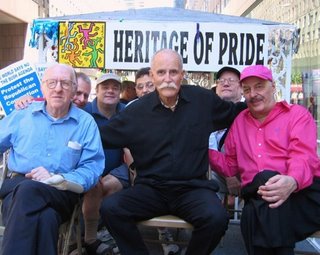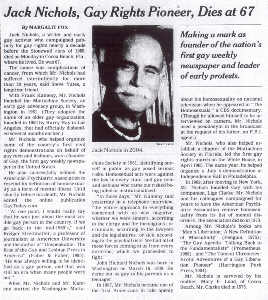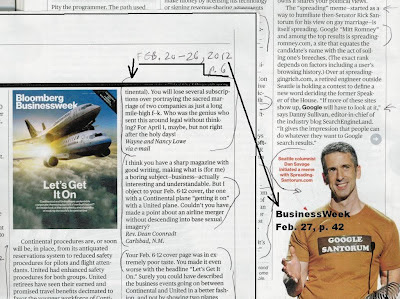PHOTO: Gay relationship ads, shown in a 1987 "The Advocate" magazine, (click photo to enlarge) were a primary source of income for early gay activist newspapers and magazines because mainstream advertisers did not want to be associated with anything gay. In the days before the advent of the internet, many gay men, especially those in isolated small towns and closeted gay men, often tried placing print ads to look for a long term relationship instead of relying on the random sex hookups that could be easily found in any cruising location across America, such as virtually any bus station tearoom or isolated outdoor park (In Corvallis, Oregon it was the city bus station and the riverfront park bushes). Similar to today, many internet advertisers have found that such relationship ads often fail to find somebody and the ads will only generate a bunch of useless leads to perverts, trolls and old silver foxes. Classified ads developed such a bad reputation that they eventually degenerated to being used mostly by sex workers, such as male prostitutes and erotic massage providers.
PHOTO: (See previous post OSU Valentines Day pride and lonely hearts on Craigslist (2/15/12)) Gay relationship ads, appearing on the Craig's List Web site in 2012, are written in a similar manner to those from before the invention of the internet. They differ only in the contemporary references and internet lingo. Judging from this student's previous ads and his plaintive pleas, it sounds like he has had little success in finding a potential long term partner to love at Oregon State University. Of course, this makes sense from a probability standpoint -- gay men at OSU are rare and so the potential pool is small. Finding somebody is a common problem faced by gay men everywhere. Historically, this type of melancholy was often misinterpreted by homophobic doctors as being a sign that homosexuals were mentally ill. Likewise, many gay men would give up looking for a healthy long-term relationship and revert to what is commonly called a "slut phase" where they would seek frequent random anonymous sex with strangers just for pleasure. Gay liberation and sexual freedom fighters encouraged this type of behavior, which fueled the unexpected AIDS crisis that hit gay men especially hard because gay men never used condoms knowing that they couldn't get pregnant like breeders could. Of course, this type of behavior would only justify the medical community's viewpoint point that homosexual men have a shallow and had narcissistic personality.
The text for the above ad from an OSU grad student at Oregon State University reads as follows:
I didn't get many worthwhile hits with my last ad, but I thought I'd give it a shot again. Maybe it will catch some different individuals' attention.
I'm looking to date, with the hopes of something becoming long term. Relationships often have a mind of their own though and it's best to let them take their own course. As such, as long as you're open to some thing becoming long term in the future, that's good to go.
I'm 6'0, roughly 165lbs (lost some weight from being sick), and in pretty good physical shape. I'm a graduate student at OSU studying Chemistry. I'm definitely a scientific type person, but I am not your typical scientist either. While I'm very analytical, observant, and scrupulous with many things, I am naturally an intuitive non-linear thinker. I have the mind of an artist, that for some reason functions very well in the world of science. In a way I bridge the world between both, left and right brained. Although I would never call myself an artist (I can't draw my way out of a paper bag, although I am quite good at ceramics). I'm also pretty in tune with my emotions and the emotions of others. Thus, I consider myself to be rather caring. I'm very communicative, and that's true across all medias. Writing, talking. Etc. I love psychology and the human mind in general. Personality theories definitely top the list. I'm highly introspective and perhaps one of the most self-aware people you could get to know. I like to apply that skills to aid others as well.
If you're interested please do email me. Tell me about yourself some, and do include a (face) picture or two (without which it's highly unlikely I will reply). Please be in good physical shape and under 30. I hope to hear from you soon!
Location: Corvallis it's NOT ok to contact this poster with services or other commercial interests (Quoted from "Dating and or LTR Path - 22 (Corvallis)" posted on corvallis.craigslist.org Mar. 21, 2012)
Clearly he is in pain and it is hard to give him any hope other than the encouragement hat what he wants is not impossible to find.








